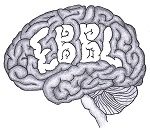Overview of Schizophrenia
Schizophrenia is an affective disorder that causes the individual to interpret reality differently than normal people. Schizophrenia is characterized by a wide array of symptoms which include hallucinations, delusions, highly erratic behavior, irregular motor and cognitive behavior, and disorganized speech and thinking. Some people with schizophrenia are unable to express emotions, are extremely depressed and tend to be isolated from others. Schizophrenia usually has an onset age of about early to mid 20s for men and late 20s for women. It is believed that imbalances in chemical reactions in the brain that involve dopamine and glutamate and other neurotransmitters is connected to schizophrenia. Other cognitive abnormalities that are common to individuals with schizophrenia include inability to understand information and use that information to make decisions, trouble focusing, and problems with recalling information after learning it (National Institute of Mental Health, 2011).
Schizophrenia only affects about 1 percent of the general populations, but is thought to have a genetic component to it. According to the National Institute of Mental Health, schizophrenia occurs in 10 percent of people who have a parent or sibling who has the disorder. There is a 40%-65% chance of developing an identical twin developing schizophrenia of the other twin has it (National Institute of Mental Health, 2011).Studies show that individuals with schizophrenia are at a higher risk for dying than healthy individuals. The possibility of an individual developing schizophrenia in their lifetime is “about seven individuals per 1,000 will be affected (McGarth, 2008).’’ In comparison to other people, people with schizophrenia have an increased mortality rate. This increased mortality rate is contributed to by other co-morbidities such as like depression and greater exposure to danger (McGarth, 2008).
Studies have shown that on an individual level, the use of cannibis is a factor in the development of schizophrenia. According to Arseneault, not using cannibis would decrease the development of schizophrenia by 8%. Though there is some correlation between cannabis use and schizophrenia, it cannot be concluded that cannibis use is necessary for the development of schizophrenia. Cannibis use is merely a factor in the development of schizophrenia (Arseneault, 2004). The use of cannabis does, however, have a detrimental effect on individuals with schizophrenia (Henquet, 2005). People with schizophrenia seemed to have a greater inclination to smoking. According to the National Institute of Mental Health, smoking might additionally to contribute to the deterioration of schizophrenic individuals by lessening the efficacy of antipsychotic drugs less (National Institute of Mental Health).
According to Drake, a greater duration of untreated psychosis (DUP) predicts worse symptoms and a lesser response to antipsychotic treatment. The longer that an individual goes without being treated, the worse that individual’s prognosis will be. Drake also suggests that the main goal of early intervention methods and resources should aim at diminishing the duration of untreated periods that schizophrenic individuals experience. “DUP’s relationship to outcome is strongest in the initial months of psychosis (Drake, 2000).” This correlation highlights the importance of early intervention when treating schizophrenic patients.
References
Arseneault, L. (2004). Causal Association Between Cannabis And Psychosis: Examination Of The Evidence. The British Journal of Psychiatry, 184, 110-117. Retrieved October 11, 2014.
Drake, R. Haley, C., Akhtar, S., Lewis, S. (2000). Causes and consequences of duration of untreated psychosis in schizophrenia. The British Journal of Psychiatry, 177, 511-515. Retrieved October 11, 2014
Henquet, C., Murray, R., Linszen, D., van Os, J. (2005). The Environment and Schizophrenia: The Role of Cannabis Use. Retrieved October 11, 2014.
McGrath, J. Saha, S., Chant, D. and Welham, J. (2008), Schizophrenia: A Concise Overview of Incidence, Prevalence, and Mortality. Epidemiol Rev, 30, 67–76-67–76.
Schizophrenia. (2011) National Institute of Mental Health. NIMH

Such an interesting and terrifying disorder. I found myself wondering about the emotional life of people diagnosed with schizophrenia. I also found myself thinking about the difficulties we face in understanding the causes and consequences of all kinds of disorders when there are so many things that differentiate the people who are diagnosed from those not so diagnosed (e.g., behaviors like smoking and cannabis use, which you alluded to here). Still lots to learn!